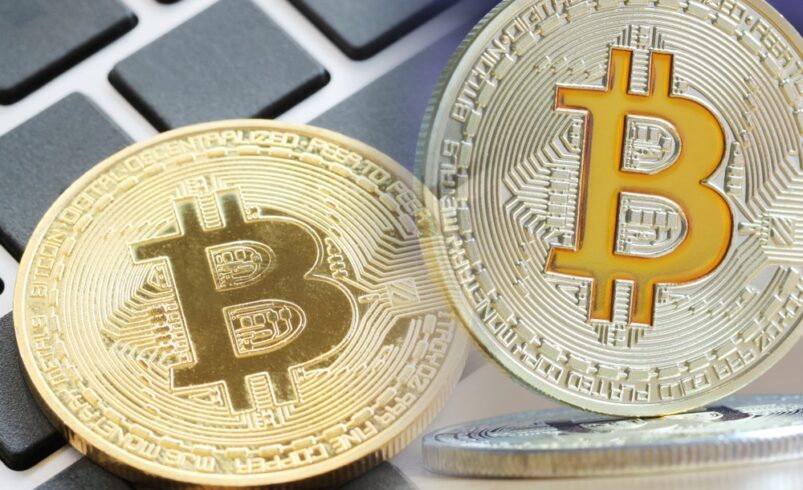Bitcoin vs. Bitcoin Cash – Key Distinctions Revealed

Bitcoin and Bitcoin Cash may appear analogous at first glance. However, like twins who possess subtle differences discernible upon closer inspection, these two cryptocurrencies exhibit distinct variations. For those seeking clarity between these two digital currencies, this guide delves into the nuances of “Bitcoin versus Bitcoin Cash,” shedding light on their contrasting features.
Comparing Bitcoin and Bitcoin Cash
As Bitcoin’s popularity surged, so did its transaction volume. Consequently, the queue of transactions awaiting confirmation expanded. The Bitcoin network’s block size is limited to 1 MB, accommodating approximately 1000 transactions per block. Occasionally, the pending transaction count soared to 100,000, leading to elevated transaction fees.
In 2017, a faction of Bitcoin developers suggested enlarging the block size to accommodate more transactions. However, another segment contended that a larger block size could compromise the network’s decentralization and security.
This divergence in views led to a bifurcation in the community and the network. A hard fork, a lasting alteration to the blockchain network, was executed, incorporating the suggested modifications. This gave birth to the Bitcoin Cash network. While the original Bitcoin network adheres to its foundational principles, the emergent Bitcoin Cash network operates based on the revised proposals, complete with its distinct Bitcoin Cash (BCH) cryptocurrency.
Bitcoin vs. Bitcoin Cash: A Comparative Analysis of Key Aspects
One of the main differences between Bitcoin (BTC) and Bitcoin Cash (BCH) centers around their respective prices and market valuations. At the time of reporting, Bitcoin was valued at $27,103, with its market capitalization surpassing $527 billion. In contrast, Bitcoin Cash had a value of $237 and a market capitalization of over 4 billion. Let’s further explore the disparities between these two cryptocurrencies.
Transaction Dynamics and Costs
The Bitcoin network operates under set parameters, including a capped supply of 21 million and halving events every four years. With a block generation time of 10 minutes and mining difficulty adjustments, it achieves transaction rates of 3-7 TPS.
Since each Bitcoin block accommodates roughly a thousand transactions, the limited space intensifies competition for swift transaction processing, elevating the fees.
In contrast, Bitcoin Cash, a derivative of Bitcoin, offers a larger block size and manages about 100 TPS. This increased block size reduces transaction competition, reducing fees and enhancing transaction speeds.
Block Dimensions
A significant variance between Bitcoin and Bitcoin Cash is their block dimensions. While Bitcoin operates with a 1 MB block, Bitcoin Cash has expanded from an initial 8 MB to its current 32 MB. This enlargement has also boosted its transaction speed to 200 TPS.
Due to its expansive block size, Bitcoin Cash offers transaction processing for less than a penny. However, this advantage has yet to expand the Bitcoin Cash network’s size significantly.
Network Security
Bitcoin’s network is renowned for its decentralization and robust security. Its global distribution of nodes or miners amplifies its decentralized nature, enhancing security.
Although Bitcoin Cash’s larger blocks facilitate more transactions at reduced fees, this could compromise its decentralization and security relative to Bitcoin.
Token Generation
While Bitcoin didn’t initially support token issuance, the Omni Layer’s introduction enabled custom token creation, primarily utilized for stablecoins.
Utilizing the Simple Ledger Protocol (SLP), Bitcoin Cash permits token issuance, including non-fungible tokens (NFTs). Some tokens are available on both networks, but widespread adoption still needs to be improved.
Replace-by-Fee Mechanism
Due to Bitcoin’s limited TPS, transactions occasionally stall. To address this, the “Replace-by-fee” (RBF) mechanism allows users to substitute a transaction by offering a higher fee.
Bitcoin Cash lacks the RBF, making unconfirmed transactions permanent. However, transaction stalling is less frequent due to its faster processing capabilities.
Final Thoughts
The Bitcoin vs. Bitcoin Cash debate remains a topic of intrigue for many digital currency enthusiasts. This analysis aims to elucidate the nuances between two similarly named cryptocurrencies. While Bitcoin is the pioneering cryptocurrency with unmatched security, its high entry barriers might deter some investors.
Conversely, Bitcoin Cash, though more accessible price-wise, might not be the optimal choice for long-term investment. Recognizing the nuances between these digital currencies will guide your investment decisions.
DISCLAIMER: It's essential to understand that the content on this page is not meant to serve as, nor should it be construed as, advice in legal, tax, investment, financial, or any other professional context. You should only invest an amount that you are prepared to lose, and it's advisable to consult with an independent financial expert if you're uncertain. For additional details, please review the terms of service, as well as the help and support sections offered by the provider or promoter. While our website strives for precise and impartial journalism, please be aware that market conditions can shift unexpectedly and some (not all) of the posts on this website are paid or sponsored posts.









